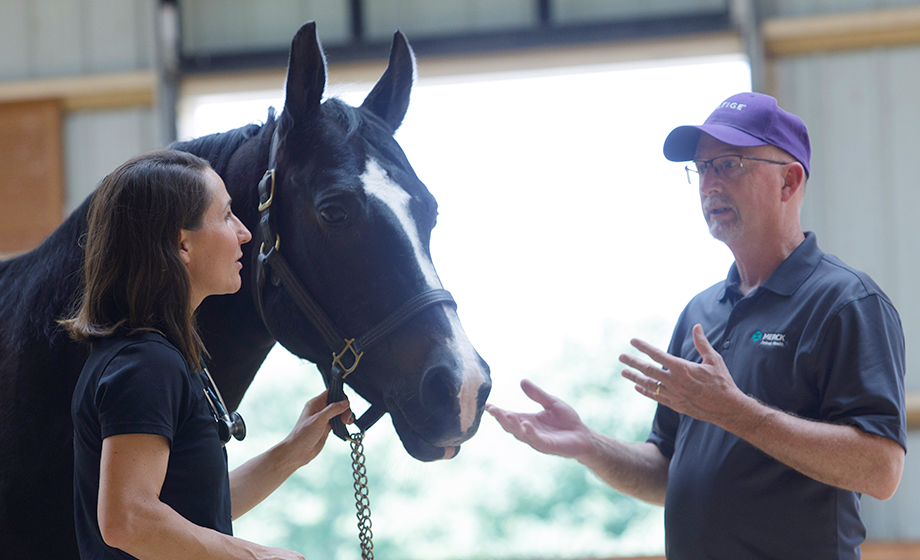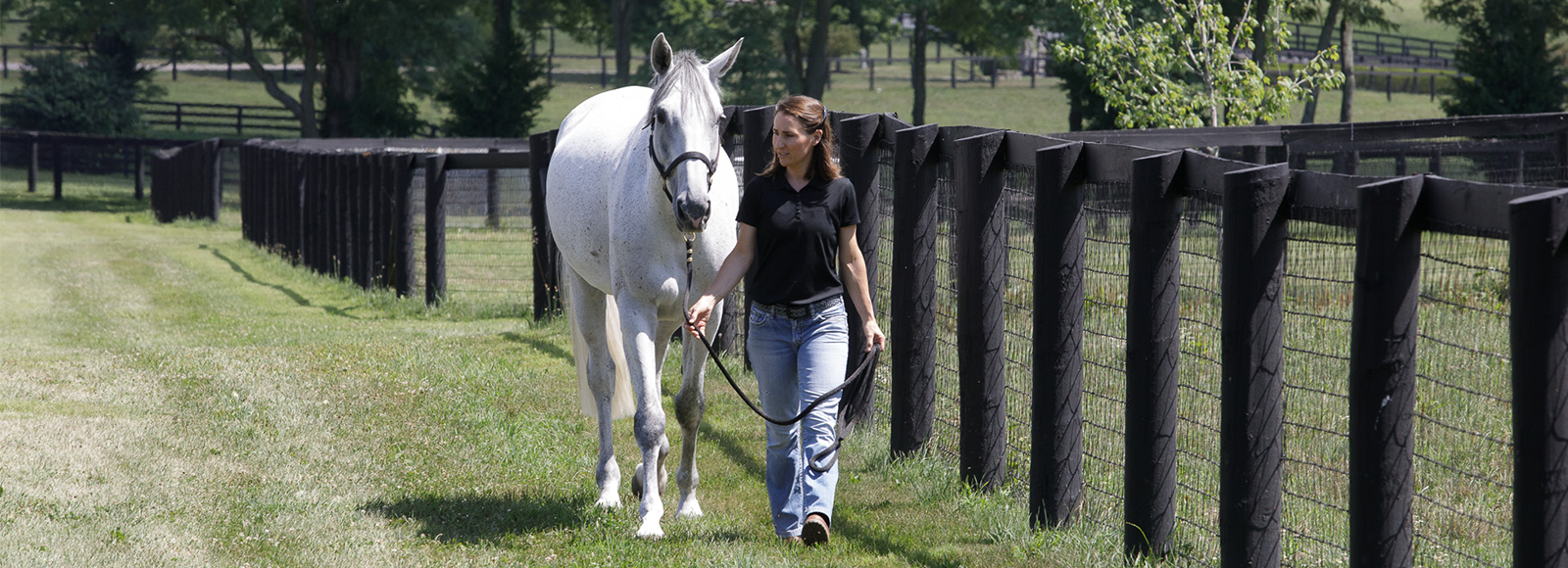
Equine Health Library
Senior Horse
Senior Horse Overview
Horses are living longer than ever before. It is estimated that senior horses – those 15 years of age and older – account for 20-30 percent of the entire horse population. Many of these horses are active well into their golden years, both recreationally and competitively. Senior horses have unique healthcare needs due to years of activity, as well as physical and metabolic changes associated with aging.
Most commonly diagnosed problems in senior horses:
- Dental abnormalities
- Hoof deformities
- Skin or haircoat problems
- Lameness/arthritis
- Cataracts and other eye problems
- Heart murmurs
Your senior horse should have an annual exam focused on these conditions as well as pituitary pars intermedia dysfunction (PPID) and degenerative joint disease. Early detection, especially when it comes to cancer and endocrine diseases, is the key to a long, healthy life.
Key healthcare action items for senior horses
- Annual physical examination including an ophthalmic exam, dental exam and soundness/lameness exam and body condition scoring.
- Timely fecal egg counts in case your aging horse requires a change in deworming regimen.
- Bloodwork (CBC/chemistry) for horses showing loss of condition without an obvious cause.
- Endocrine testing for PPID and Equine Metabolic Syndrome in horses experiencing unexplained bouts of laminitis, changes in haircoat, increased drinking and urination, excessive sweating, increased appetite, muscle loss (especially along the topline), a potbellied appearance, and/or abnormal fat deposits.
- Click here to download the Equine Health Library Senior Horse Special Needs Record to keep track of injuries and disease for your senior horses.
Wellness & Prevention
Immunology
As horses age, their immune system may not respond to insults as efficiently as it used to, and the horse may become more susceptible to infectious respiratory diseases such as Equine Herpesvirus (EHV) and Equine Influenza.
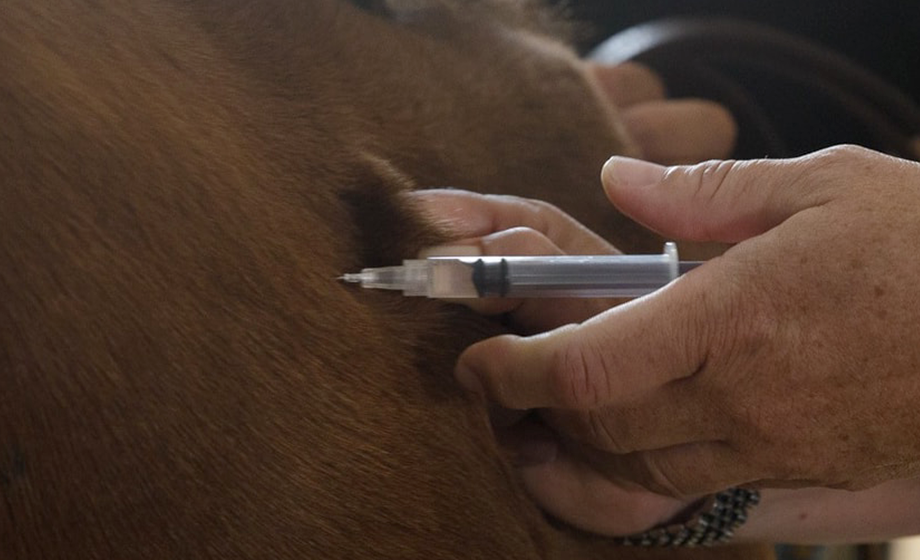
Parasitology
As horses age, they have different needs for parasite control.
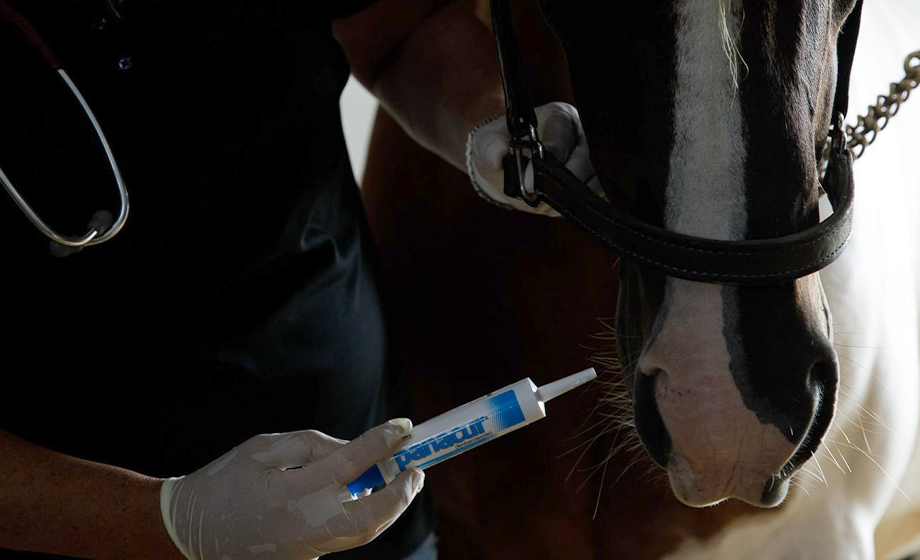
Nutrition
Senior horses need appropriate dental care and may need specialized feeds to meet their unique demands.
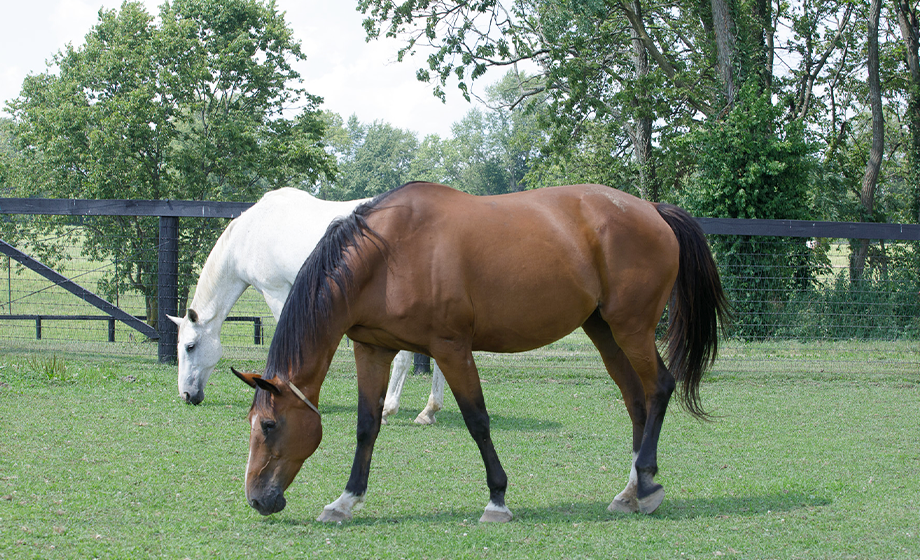
Dental Care
In the wild, a horse without teeth may not have survived for very long. But under the careful eye and care of an attentive owner, horses with worn or missing teeth can live long, healthy and happy lives.

Hoof Care
Your senior horse may not be getting ridden as much as he did in his younger years, but that’s no reason to discount the importance of good hoof care.
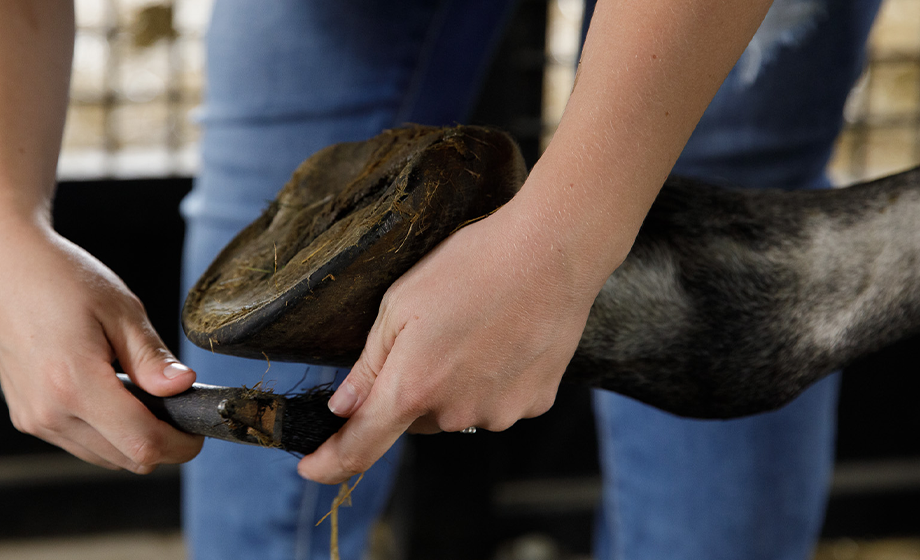
Health Conditions & Concerns
Neurologic
For the senior horse, neurologic disease can present in many different ways.
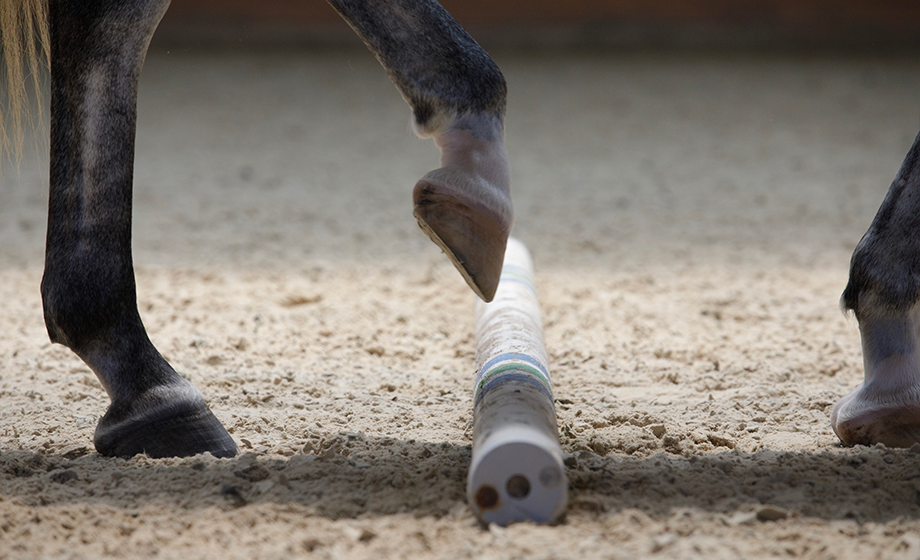
Gastrointestinal
Senior horses can have unique dietary needs.
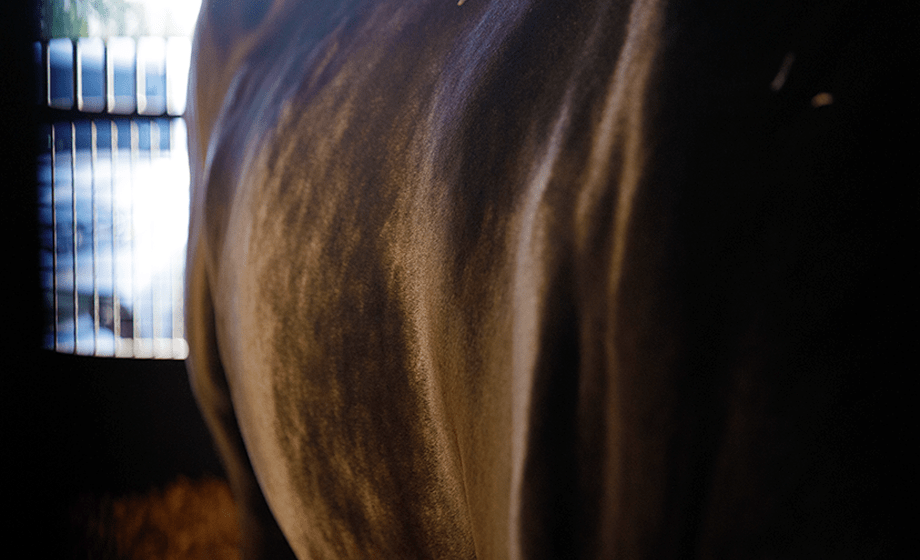
Respiratory
As horses age, they become more prone to heaves, or recurrent airway obstruction (RAO).
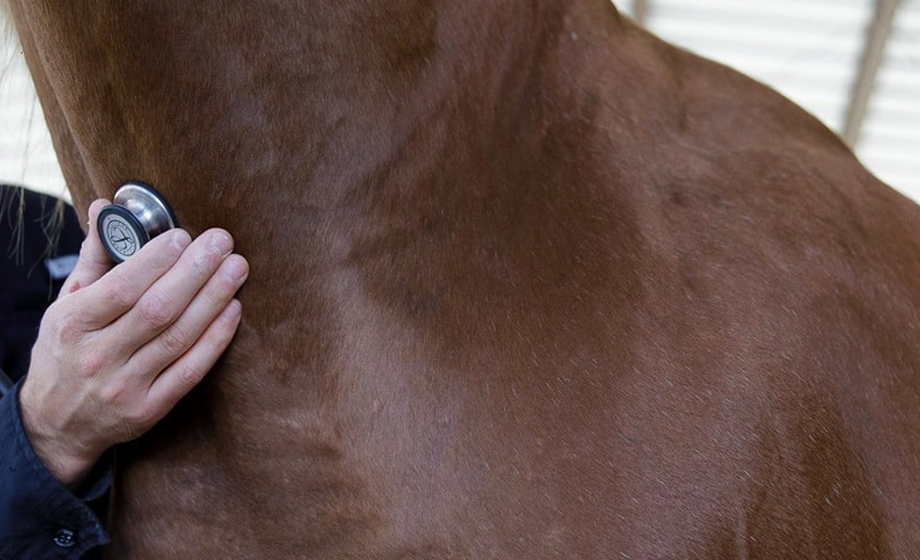
Musculoskeletal
Osteoarthritis is a common disease that affects senior horses. Early detection can keep horses happy and healthy.
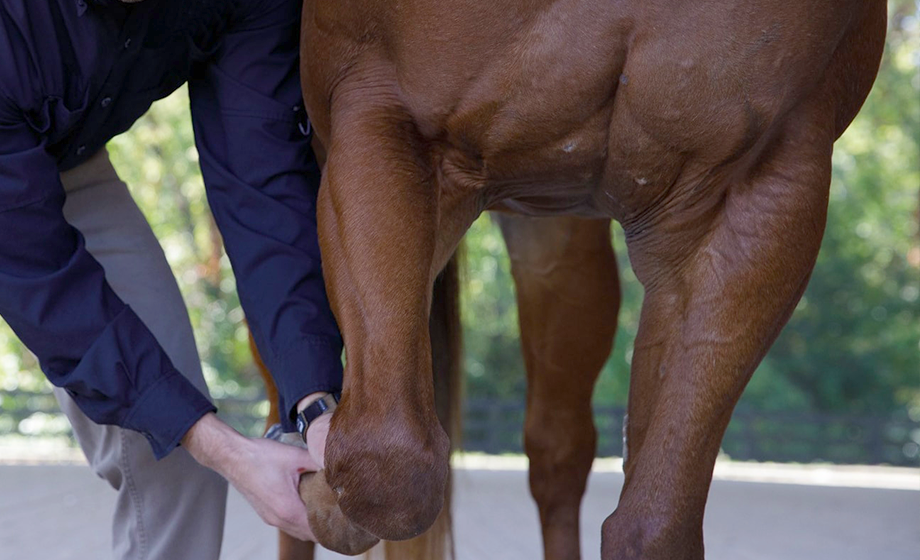
Endocrine
If your older horse has had previous bouts of recurrent laminitis or seeming to take all summer to shed that winter hair coat, read further to learn more about pituitary pars intermedia dysfunction (PPID) in the horse.
